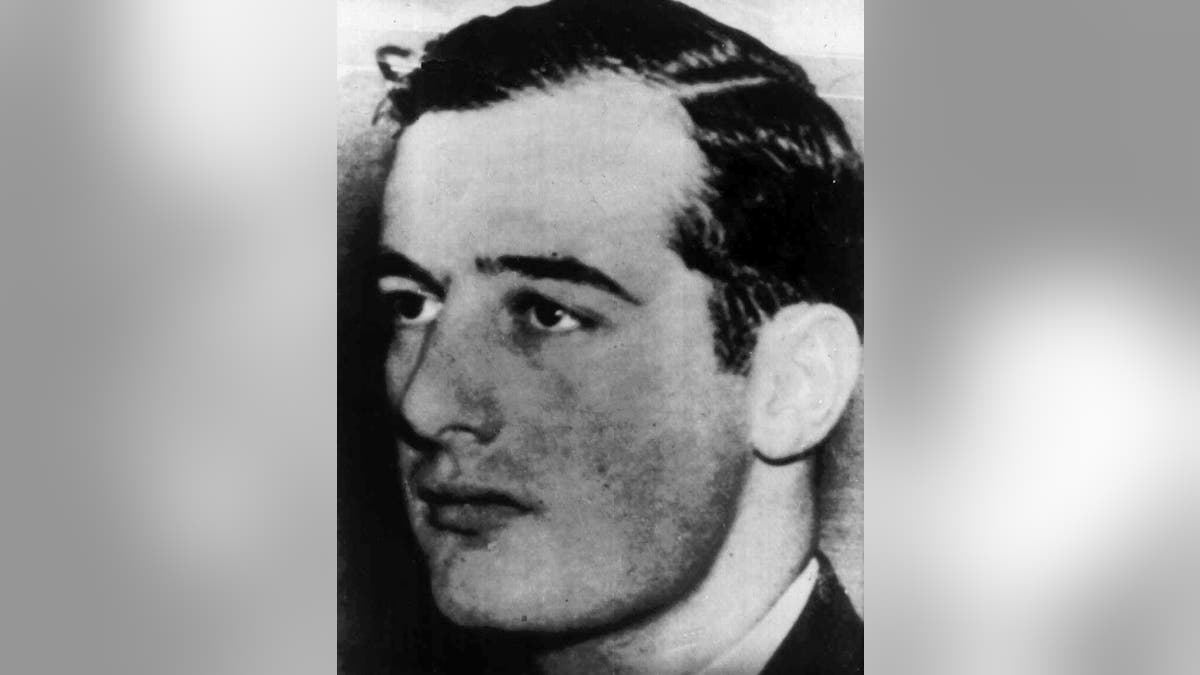
Raoul Wallenberg in an undated photo. (Pressens Bild via AP, File)
A hero of World War II who vanished after he was credited with helping at least 20,000 Hungarian Jews escape the Holocaust was declared dead Monday, more than 71 years after the war ended.
Historians said Raoul Wallenberg, a Swedish diplomat, was believed to have died in Soviet captivity. The specific time and circumstances of his death remain unresolved.
FORMER MEMBER OF FAMED TUSKEGEE AIRMEN DIES IN NYC AT 92
Wallenberg vanished after the Red Army arrested him in Budapest in 1945. The Soviets initially denied he was in their custody, but in 1957 they said he had died of a heart attack in prison on July 17, 1947.
Another report suggested he was still alive six days later. There have been numerous unconfirmed witness accounts from people saying they saw him decades later.
Wallenberg, who was born in 1912, helped provide Swedish passports or passage to safe houses for Jews in Budapest trying to escape the horrors of the Holocaust.
Citing documents from Hungarian archives, Swedish-Hungarian writer Gellert Kovacs said Wallenberg had closer links with Hungary’s non-Communist resistance movement than previously thought. That, Kovacs said, could shed new light on why the Soviets arrested him and why supposedly neutral Sweden remained so passive after his disappearance.
REPLICA OF PART OF HITLER'S BUNKER SPARKS CONTROVERSY IN BERLIN
"For me it is very clear that it was also Wallenberg’s mission to act as some kind of coordinator between the resistance forces and the Allies," Kovacs told The Associated Press.
The Swedish Tax Authority, which registers births and deaths in Sweden, confirmed a report Monday in the Expressen newspaper that Wallenberg had been pronounced dead.
Pia Gustafsson, who heads the agency's legal department, told The Associated Press that the decision was made on Oct. 26 after an application from Wallenberg's trustee.
She said the date of Wallenberg's death was set as July 31, 1952, a date chosen by default under a rule saying a missing person who is presumed to have died should be declared dead five years after his disappearance.
In Kovacs' 2013 book, he claims documents he found in Hungary’s military history archives showed how a member of the resistance movement communicated the position of Nazi Germany’s ships in the Danube river to the allies via radio equipment in the Swedish embassy. British planes based on Malta then bombed the ships.
While there is no documentation that links those activities directly to Wallenberg, Kovacs says his research shows Wallenberg had frequent contacts with leaders of the non-communist resistance movement including Kalman Zsabka and Zoltan Miko.
Many countries have memorials commemorating his work, including Israel, which designated him as one of the "Righteous Among the Nations," the highest honor granted to non-Jews who risked their lives to save Jews during the Holocaust.
The Associated Press contributed to this report.
